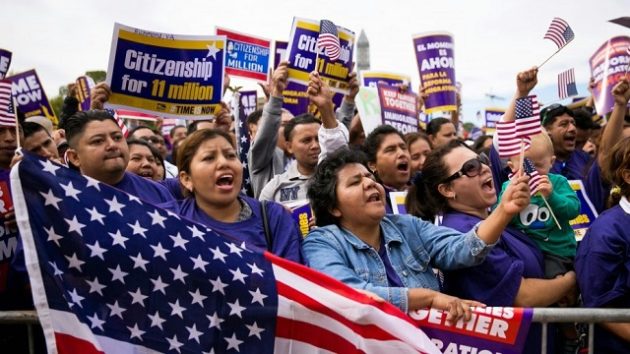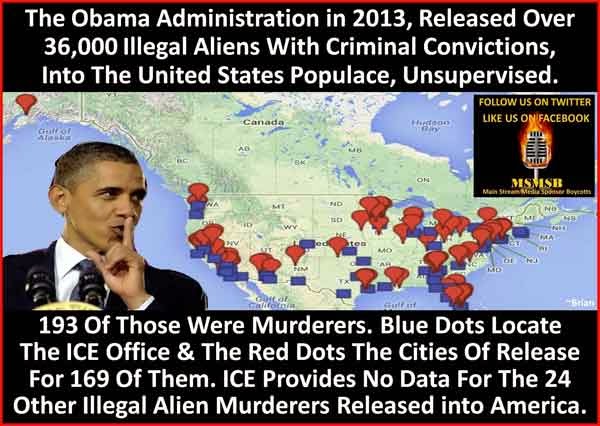Immigration Reform Becomes a Priority — Again
Every few years immigration becomes a political issue and, in truth, it has always been an issue in the minds of generations of Americans from its earliest years. Initially, those who were here, largely from England, wanted others like them, but America was a dynamic place spreading West and with a growing industrial sector.
Events elsewhere in the world also played a role. By the middle half of the nineteenth century more than one-half of the population of Ireland emigrated due to a famine there. They were joined by Germans who came to America to escape severe unemployment, civil unrest, and other hardships.
From 1820 to 1870, more than seven and a half million immigrants came to the United States—more than the entire population of the country in 1810. Their labor helped build canals and railroads.
They were followed by a mass immigration from Russia and Eastern Europe in the second half of the nineteenth century and early twentieth. The majority were Jews escaping persecution. They were joined by a massive immigration of Italians. In the 1880s there were 300,000 Italian immigrants, but that doubled by the 1890s and not long after that more than two million had arrived. By 1920 America had four million Italians who now called it home. Among both the Italians and Russians were my ancestors.
That was then and this is now. Mostly Americans are being told that the immigration issue is about politics; getting more Hispanics into the nation so they can vote for Democrats. There is a measure of truth to this, but the real issues that are rarely addressed in the mainstream media are demographic, the effect their immigration—particularly their illegal immigration—is having on fundamental issues of employment, the cost of educating them, the criminals among them, and their access to various welfare programs all funded out of the pockets of taxpayers, local, state and federal.
Most dramatic, but never spoken of is the way the influx of illegals is making life very difficult for those waiting in line to legally become citizens; those seeking immigration visas and green cards They are getting shafted as they wait months or years for their applications to be processed by a bureaucracy overwhelmed by the waves of illegals.
In California, however, it is now okay for illegal immigrants to get driver’s licenses. None of this makes any sense since, of course, they are breaking our laws just by being here. Only in America would we witness rallies in which illegal aliens demand to be granted instant citizenship.
In late 2014, the Center for Immigration Studies issued a report noting that nearly one in six adults in the U.S. is foreign-born. Based on Census Bureau data, the Center found that the nation’s immigrant population (legal and illegal) hit a record 41.3 million in July 2013, an increase of 1.4 million from July 2010. That was double the number in 1990.
“The new data makes clear that while Latin America and the Caribbean are still a significant source of immigration, the growth is being driven in large part by immigration from Asia, the Middle East, and Africa,” said Steven Camarota, the Center’s Director of Research.
Do we really want to be opening our doors to immigration from the Middle East? Isn’t that what contributed to the recent murderous attack on the French satirical newspaper? Isn’t the Middle East where the attack on the World Trade Center was planned? Weren’t other attacks here inspired by the Islamic jihad? Isn’t northern Africa called the Maghreb in recognition of its Islamic nations? Aren’t we wondering not if, but when, another attack will occur here?
Writing about immigration issues in June 2014, Nancy Thorner, a Research Fellow at The Heartland Institute, noted that “Since October of last year 52,000-to-60,000 unaccompanied children have arrived at our border with Mexico with the expectation of being allowed into our country. They came mostly from Honduras, Guatemala or El Salvador.”
They came in the thousands, but they were fully expected by the Obama administration that had set up what was simply a mass invasion. U.S. immigration laws exempted them from being turned away at the Mexican border.
“Recently Democrats,” wrote Thorner, “have sought to re-frame the deepening crisis by identifying the immigrants as ‘refugees’, to coincide with the different rules and laws that apply to people with that label. That is one reason critics believe Obama’s intention is to find a way to keep all 60,000-plus immigrants here permanently.” The White House “has projected a staggering cost of $2.28 billion to care for and resettle child immigrants from Central America; some say that figure is low.”
The politics surrounding immigration will be highlighted on Wednesday (Jan 14) when an immigration plan heads to the House for a vote. As reported by the Associated Press, “It would block President Barack Obama’s recent limits on deportations and undo protections for immigrants brought to the United States illegally as children.” Obama has tried to change immigration law using executive orders. That’s unconstitutional.
What is news is the fact that the House Speaker John Boehner, seen by his critics as too accommodating to the President, has embraced the tougher plan.
“At issue, is a $39.7 billion spending bill to keep the Department of Homeland Security funded through February. The House version would block Obama’s November order granting temporary relief from deportation to about 4 million immigrants who are in the country illegally. Most have been here at least five years and have children who are citizens or legal permanent residents.”
“In a surprise to many, the House GOP proposal would also reverse a 2012 program called Deferred Action for Childhood Arrivals that removed deportation threats to certain immigrants brought illegally to the U.S. as children.”
Assured of passage in the House, if the bill makes it through the Senate largely intact, Obama is expected to veto it.
The issue of immigration is about to take center stage for a while, becoming a priority as it is put to a vote, but the real issues of Immigration are as much about people as politics, as much about its costs as about compassion.
© Alan Caruba, 2015



